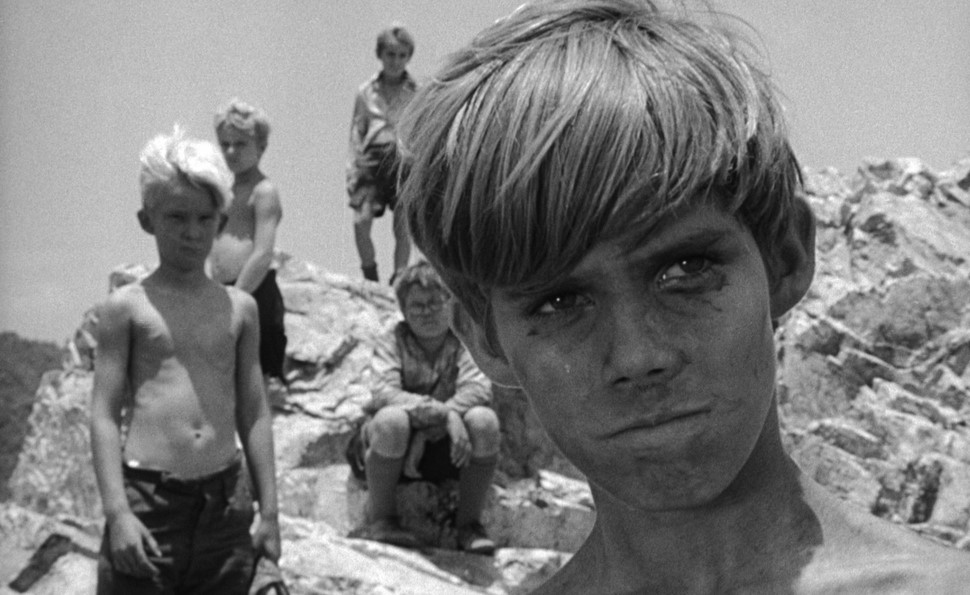
To listen to today’s reflection as a podcast, click here
During the month of November we’re taking a look at 21 essential activities of the Holy Spirit, who represents God’s presence in and through every follower of Jesus.
What would you do if you were stranded with a handful of other people on an uninhabited island?
That question lies at the heart of a truckload of novels, love stories, and TV series like Gilligan’s Island and Lost, not to mention countless jokes and cartoons.
It also prompts one of the classic small group icebreaker questions: If you were marooned on an island and could have just one book besides the Bible, what would it be? British essayist G.K. Chesterton memorably answered, Thompson’s Practical Guide to Shipbuilding.
In 1954, William Golding chose the setting of an Eden-like island somewhere in the South Pacific for his first novel, Lord of the Flies – a book that routinely appears on lists of the 100 best English language novels ever written.
The book is the tale of a group of British schoolboys who survive a plane crash. All the adults are lost. The boys, who now find themselves alone on an island, will need to make do without grown-up authority.
At first things seem to go well. The well-educated boys endeavor to govern themselves.
But the mirage of orderliness soon gives way to chaos. Most of the boys opt out of contributing to the common good. A power struggle emerges between Ralph, who has humane instincts, and Jack, who is intoxicated by command and control.
Paranoia begins to grip the group. The boys imagine that a Beast lurks on the island. The Beast must be slaughtered.
Savagery escalates. The social graces they once exhibited back at school are overwhelmed by primitive impulses.
Just as things seem to have reached a point of no return, Ralph, fleeing for his life, staggers onto the beach. There he looks up to see a British officer wearing a clean, starched uniform.
The officer, leading a rescue party, stares incredulously at the scene before him: the best and brightest of British society, the very young men groomed to be its future leaders, have descended into violence and disorder.
Theologian Gary Burge reflects, “The point is that deep within their little hearts resided a monster of untold ferocity.”
The title Lord of the Flies is intriguing.
It appears to be a reference to an ancient Hebrew put-down of a pagan god in 2 Kings 1:2-3, 6, 16. The Philistines worshipped a deity called Beelzebul, or “Lord of the High Place.” The Israelites – in a strategy reminiscent of kids dissing each other on an elementary school playground – mocked Beelzebul by changing the last letter of his name.
They called him Beelzebub, which means “Lord of the Flies.” Lord the High Place, you say? No, your god is more suited to supervising the insects attracted to garbage and excrement.
By the time of Jesus, Beelzebub had become the title of a powerful demon or even another name for Satan himself.
Golding’s point is subtle but powerful. As the veneer of “being nice” is pulled back, we always end up counting on false gods. Whatever strategy we embrace – whether using paranoia to intimidate others, or choosing ethically shady options because corner-cutting seems to work, or holding on to power at all costs – will ultimately come back to bite us.
Where can help be found?
Salvation comes from without.
The schoolboys can’t grasp what has happened to themselves until the officer shows up on the beach. They can’t see their true condition until they see it through his eyes, and are shocked at how far they have fallen.
One of the Holy Spirit’s chief jobs is to open our eyes to the truth about ourselves. Jesus makes that clear in some of his final remarks at the Last Supper. Even as he assures his disciples that he is not on the verge of abandoning them – God’s Spirit will serve as his constant presence with them in the days ahead – he describes the Spirit’s power to convict:
“When he [that is, the Spirit] comes, he will prove the world to be in the wrong about sin and righteousness and judgment: about sin, because people do not believe in me; about righteousness, because I am going to the Father, where you can see me no longer; and about judgment, because the prince of this world now stands condemned” (John 16:8-11).
When left to ourselves, we get things wrong.
We become badly mistaken about the difference between right and wrong, about our vulnerability to our own dark impulses, and about the degree to which we have fallen short of God’s standards.
The Spirit arrives just in time to say, “Take a good long look at what you’ve become. Is this how you want to keep living, or are you ready to do what it takes to experience the life you’ve always wanted?”
Our culture enjoys clinging to a one-dimensional caricature of God. We’re having this great party until God shows up to make sure no one has any fun.
It’s far more accurate to say that God, in the person of his Spirit, has arrived on the beach at the head of a rescue party.
To save us from ourselves.
